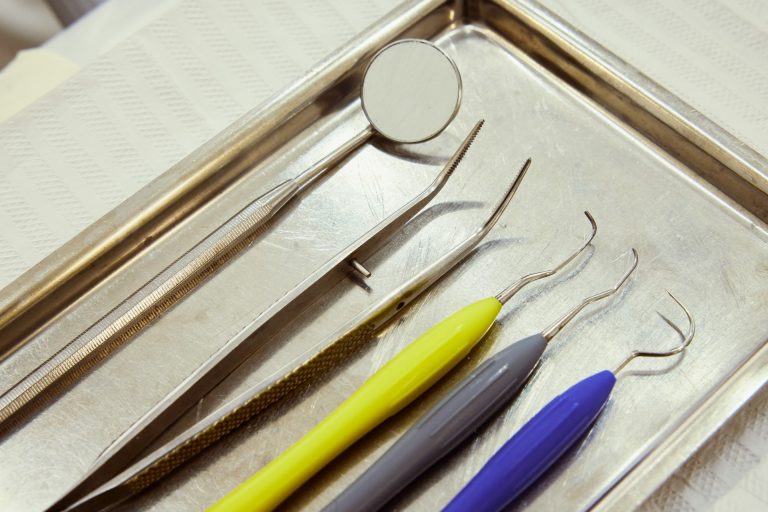Are you a busy dental practice manager looking to get ahead of the curve with your ordering processes? Perhaps you’re an aspiring dentist who wants to learn everything there is to know about your field of choice? Or maybe you’re just someone who is curious about learning all about a truly fascinating field of study. You’re in luck!
Our latest guide is going to talk you through everything you need to know about the essential dental instruments no practice can run without. Let’s dive into the details and learn all about what’s going on.
Dental Mirrors
A dental mirror is a dentist’s instrument of choice when they want to be able to get a clear look at an obscured area of the mouth. Many dentists also use the mirror to gently and carefully move soft tissue out of the way, giving themselves more room to work in the process. Exactly what’s needed when working in a very confined and delicate environment that always requires the utmost care and attention.
Dental Probes
Dentists use a variety of probes to detect cavities and confirm the presence of plaque and tartar buildups. Periodontal probes are used specifically to measure the depth and extent of pockets that form as the gums pull back and begin to decay. The right selection of probing instruments is essential if a dentist is going to consistently diagnose patient issues.
Dental Scalers
Tooth surfaces that exist above the gumline are breeding grounds for plaque and tartar buildup. A range of different sizes of scalers is needed to make sure that the dentist and their assistant can address these often stubborn buildups without delay. Many practices will have dozens of duplicate scalers to ensure that appointments are never delayed due to sterilisation procedures taking place.
Precision Handpieces
A handpiece removes decaying tooth structures and prepares cavities for corrective or preventative treatments. They are designed to feature a range of high-precision head attachments and will come finished with an ergonomic grip. The idea is for the dentist to enjoy uncompromising control so that they can focus on the fine margins that allow them to make a real difference to patients’ lives.
Amalgam Carriers
Carrying and placing amalgam fillings requires a dedicated set of carriers that are fully sterilised prior to use. These highly specialist pieces of equipment are a key component of any clinic’s array of dental instruments. Without these unsung heroes, many of the filling procedures dentists do across the country on a daily basis would simply not be possible.
Needles and Syringes
Administering local anesthesia requires a specialist dental needle that can penetrate the gums safely and with a high degree of precision. The needles are specially designed for this application, and every practice manager will need a reliable supplier for this high-volume consumable. Finding a team with nationwide reach and a national reputation for reliability, speed, and competitive pricing will help every practice run that little bit more smoothly.
Curettes
This rather unique dental instrument is generally used to remove plaque and tartar from tooth surfaces that sit below the gumline. The specialist design and precision grip ensure that the dentist can focus on the task at hand without the risk of damaging or unnecessarily disturbing the surrounding soft tissue structures.
Extraction Forceps
Forceps are used to handle teeth and are often used in combination with elevators that loosen decaying teeth prior to extraction. This two-pronged approach allows dental professionals to get to the root of the problem and remove problem teeth without leaving behind broken or partial root structures. Many dentists will favour a particular make, model, and size of forceps as they feel it fits the profile of their hands best. This example of personal taste is something every dedicated practice manager would do well to make themselves aware of.
Suction Devices
Saliva and food debris can easily obscure the view of a dentist when they need to be able to focus on the task at hand. A suction instrument will typically be used by a hygienist or dental assistant while the senior dentist performs the procedure.
Conclusion Dentists use a wide variety of instruments that extend far beyond the mirrors and handpieces that many of us are already familiar with. If you are an aspiring student of dentistry or a busy practice manager, having a quick read of this guide will hopefully point you in the right direction. And if you’re just curious, hopefully we’ve provided you with plenty to think about!



